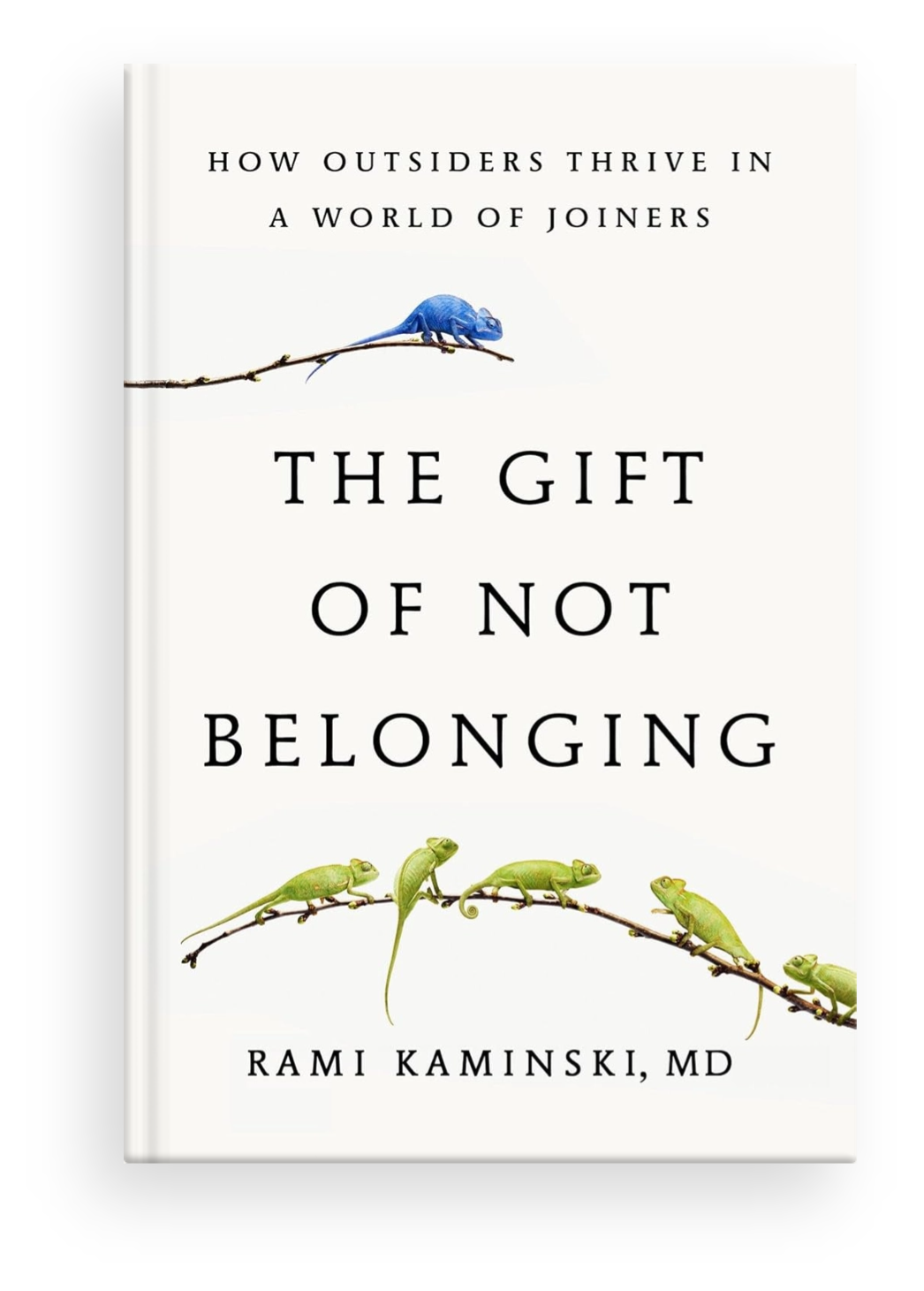Those who feel
they don't belong,
belong here.

We are all singular entities at birth. When we begin to use language, most of us make the shift from solitary to communal beings. Our entire life from then on is driven by innate desire to belong, finding safety in groups and fear in isolation. A minority of humans do not make this transition and remain non-belongers; otroverts are eternal outsiders.
Otherness is a personality trait. Otroverts are empathic and friendly, with no problem creating loving relationships. In fact, there is no obvious distinction from any well-adjusted individual. The distinction lies in the inability to belong.
It is the balance between your individuality and your function as part of the social matrix that determines your well-being. The experience of otherness in a togetherness-minded world can be emotionally bruising. Often misunderstood and misdiagnosed, otherness may lead individuals to feel strange, lonely, and unwelcome in groups. Left unidentified, otroverts' non-belonging can result in a frustrating, futile lifetime effort of trying to “fit in”.

[noun, adjective ot-truh-vert; verb ot-truh-vert]
Definition
An “otrovert” embodies the personality trait of “otherness” remaining an eternal outsider amidst humanity's shift from solitude to social connection through language. Unlike relational disorders, otroverts are empathetic and friendly, yet struggle to truly belong in social groups, despite no apparent behavioral distinctions from well-adjusted individuals.

Much like a bluetooth device, the majority of humans automatically
search for
connection, pairing with others when possible.
Otroverts are not wired for group
affinity in the same way.
The larger the group, the lonelier they feel.
Our otherness resources are for mental health professionals,
teachers, colleagues, friends, and family to learn to:
Otherness is not a mental illness, but otroverts
benefit from one-on-one support to:

Award-winning psychiatrist, Dr. Rami Kaminski, MD, uncovered throughout the course of his career that there was a certain character type that eluded recognition: an inherent inability to belong. Dr. Kaminski realized that contrary to neurodivergent individuals or those suffering from mental illness, otroverts are unfailingly social and empathic. He observed that the conflict between the natural human desire to belong and the inability to do so, causes unnecessary suffering and ostracism. Dr. Kaminski is determined to make space for otroverts by building awareness and acceptance about this unique human phenomenon.

The most salient aspect that differentiates communal introverts from otroverts, is belonging. While communal introverts are tentative and self-effacing, otroverts are often pseudo extroverts. Behaviorally, an otrovert can appear gregarious, outgoing, and commanding in social situations. But this friendly...

Otherness can be difficult to recognize, not only because it is a phenomenon that has only recently been brought to awareness, but also because it does not necessarily manifest in the ways some might expect of “perpetual outsiders”. Otroverts...

Self-centeredness is an essential part of emotional health: you must focus on taking care of yourself. It may seem paradoxical, but focusing on yourself and taking care of yourself is in fact a way to care for those around...

Your involvement, whether through a one-time or ongoing donation,
will help us spread the message
of embracing diversity of
life and enable 'otroverts' to lead their lives to the fullest.
Your donation will
have a meaningful, enduring impact on the
individuals we are here to empower.